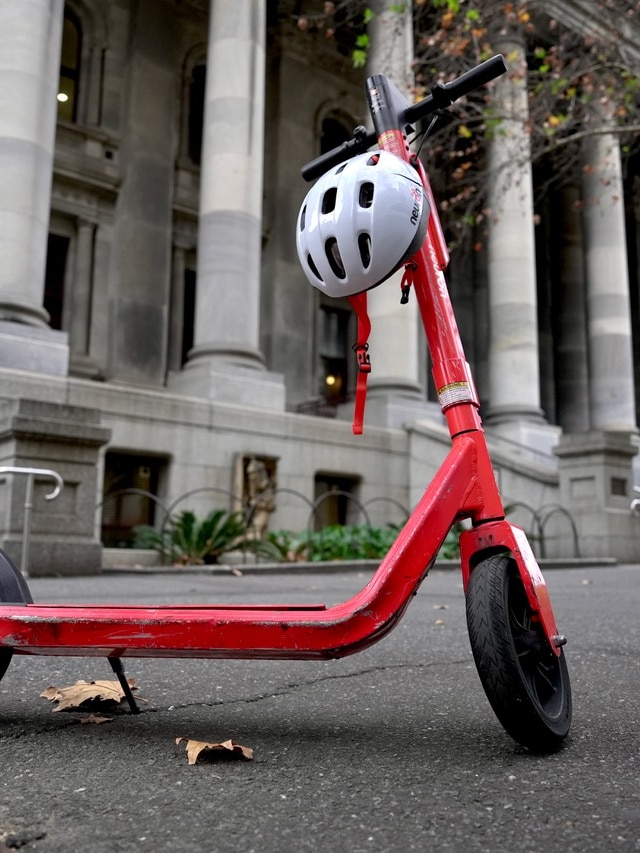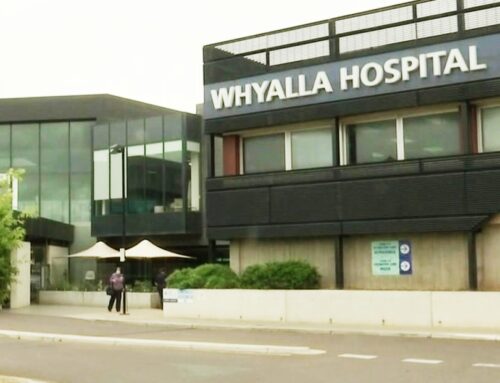People as young as 16 will be allowed to ride their own electric scooters and skateboards — including to school — under new legislation to better regulate use of the e-scooters on footpaths and legalise them on public roads, the South Australian government says.
The proposed changes, which the government said would put e-scooter regulations in line with those that apply to bicycles, have been welcomed by Adelaide man Justin Coppock, who spent three days in jail after he was pulled over by police for riding his electric unicycle on the road.
“It would be a great relief to a lot of people that they won’t be treated as criminals for being environmentally friendly and trying to commute in a cheap and safe manner,” he said.
Hired e-scooters have been allowed on Adelaide footpaths and shared paths since 2019, but privately-owned devices are illegal to ride on roads and can only be used on private property.
However, the law has not kept pace with the technology, which is widely available for purchase in shops and online.
Under new legislation expected to come into effect by early next year, privately owned e-scooters and other “personal mobility devices” including electric unicycles, or “monocycles”, will be treated in the same way as bicycles and will be able to be used on roads and bike paths.
“[It’s] going to allow us to legalise the private use and private ownership of e-scooters and electronic mobility devices, whether they be e-skateboards, e-scooters or of course the monocycles as well,” Transport Minister Tom Koutsantonis said.
“These personal mobility devices are being embraced by people during a cost-of-living crisis, there are people using them to augment the way that they travel, get to and from workplaces.
“People who use these new electronic devices will have to wear helmets, to be over the age of 16, but [the scooters will] be treated like a bicycle, so there’ll be no registration.”
The government said e-scooters could not be used under the influence of alcohol or drugs, and speed restrictions would apply — with a proposed maximum speed of 25 kilometres per hour on roads and bike lanes, and 15kph on paths used by pedestrians.
“A large cohort of people using these will be children, teenagers,” Mr Koutsantonis said.
“They are interacting with people on footpaths, so we want to make sure that the power-weight ratios here are appropriate so there will be limits put on.
“We don’t want to basically legalise motorcycles for non-licensed people on footpaths so what we’ll be doing is making sure they’re speed limited, that they’ll wear helmets.”
‘Environmentally friendly and fiscally responsible’
Justin Coppock was riding his unicycle on an Adelaide suburban road in December 2022 when he was pulled over by police and charged with driving an uninsured and unregistered vehicle while not wearing a helmet.
He said had the legislation been in place, he might have walked away with a fine for not wearing a helmet rather than spending three days in jail.
The 47-year-old from Modbury said the legislation had been “a long time coming”.
“That’s all we’ve been asking for from the start just to be at least given the same treatment as a cyclist so we can actually legally be on the road,” he said.
“If this is legalised, that gets us off the footpath and onto the road and away from [pedestrians].
“A lot of people just cannot afford to be paying $2 a litre for petrol and maintenance that goes along with owning a car these days and are looking for more compact, environmentally friendly and fiscally responsible ways of getting around.”
Mr Coppock said he hoped government — state and local — would invest in more bike lanes or better footpaths after he dislocated his elbow riding over a tree root on a footpath.
“It’s not just us – it’s people in prams, in wheelchairs, in mobility scooters and other types of accessibility devices that need to use these paths and they are frankly in a shocking state in many council areas in Adelaide,” Mr Coppock said.
The Transport Minister said he expected widespread uptake of the technology, including among students “going to school”, and that the rules would be adjusted in line with the evidence.
“If we find that 16 … is too young and that there are injuries occurring because 16-year-olds are having a higher frequency of crashes than others, we may look at it and lift the age limit,” Mr Koutsantonis said.
“If people are on footpaths at excessive speed, police can make an assumption — that they believe that they were speeding over the speed limit — and they can issue an infringement notice the way they do now.”
Mr Koutsantonis said that police would enforce the laws, and that “personal insurance” would cover accidents.
“If we went down a public liability path that would mean registration and licensing for e-scooters and that’s not a regulatory burden people wanted,” he said.




